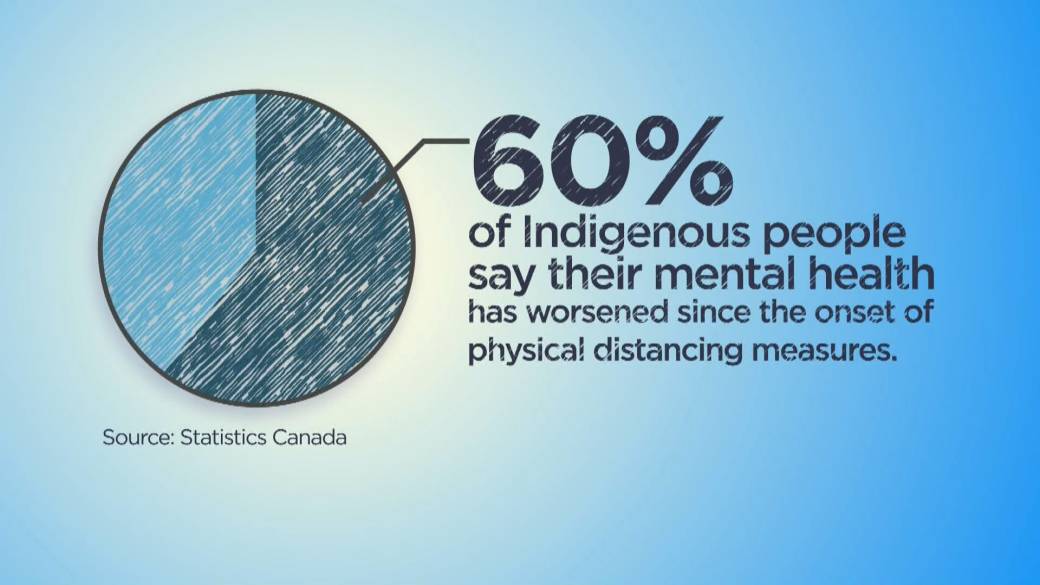Youth Mental Health In Canada: Urgent Needs And Global Solutions

Table of Contents
One in five Canadian youth experiences a mental health challenge. This sobering statistic highlights the urgent need to address the growing crisis of youth mental health in Canada. The impact extends beyond individual suffering, affecting families, communities, and the nation's overall well-being. This article explores the current state of youth mental health in Canada, examines effective prevention and intervention strategies, and draws on global best practices to illuminate pathways towards improved care and support. We will delve into access to care, prevention programs, and the crucial role of technology and research in building a healthier future for Canadian youth.
H2: The Current State of Youth Mental Health in Canada:
H3: Prevalence of Mental Health Issues Among Canadian Youth:
Canadian youth face a range of mental health challenges, with anxiety and depression being particularly prevalent. Statistics Canada reports alarming rates of mental health disorders among young people, impacting their academic performance, social lives, and overall well-being. The Canadian Mental Health Association (CMHA) emphasizes the significant burden this places on individuals, families, and the healthcare system.
- Anxiety: A substantial percentage of Canadian youth report experiencing anxiety disorders, impacting their daily lives and academic performance.
- Depression: Depression rates among youth are also significantly high, often leading to feelings of hopelessness, isolation, and decreased motivation.
- Suicide: Suicide remains a leading cause of death among young Canadians, underscoring the urgent need for effective suicide prevention strategies.
- Disparities: Indigenous youth and LGBTQ+ youth disproportionately experience higher rates of mental health challenges, highlighting the need for culturally safe and inclusive services.
H3: Barriers to Accessing Mental Healthcare:
Navigating the mental healthcare system as a young person in Canada can be incredibly challenging. Many youth face significant barriers to accessing timely and appropriate care.
- Long Wait Times: Extensive waitlists for therapy and other mental health services are commonplace, delaying crucial interventions and exacerbating existing challenges.
- Financial Constraints: The cost of therapy and other mental health services can be prohibitive, particularly for families with limited financial resources.
- Geographical Limitations: Access to specialized mental health services is often limited in rural and remote communities, creating significant inequities in care.
- Stigma: The stigma surrounding mental health continues to prevent many young people from seeking help, fearing judgment or discrimination.
H3: The Impact of Social Determinants of Health:
Social determinants of health significantly influence the mental well-being of young Canadians. Factors like poverty, discrimination, and lack of social support increase the risk of mental health problems.
- Poverty and Food Insecurity: Youth experiencing poverty and food insecurity are at a significantly higher risk of developing mental health issues.
- Housing Instability: Lack of stable housing contributes to stress, anxiety, and other mental health challenges.
- Exposure to Violence: Experiencing violence, whether at home, school, or in the community, can have devastating effects on a young person's mental health.
H2: Effective Prevention and Intervention Strategies:
Addressing the youth mental health crisis requires a multi-pronged approach encompassing prevention, early intervention, and access to quality care.
H3: School-Based Mental Health Programs:
Schools play a vital role in promoting mental well-being and providing early intervention. Comprehensive school-based programs are essential.
- Mindfulness Training: Teaching mindfulness techniques can help youth manage stress, anxiety, and emotional regulation.
- Mental Health Literacy Education: Educating youth about mental health issues reduces stigma and encourages help-seeking behaviour.
- Peer Support Programs: Training peer support networks can provide valuable support and understanding among students.
H3: Strengthening Family Support Systems:
Families play a crucial role in supporting youth mental health. Strengthening family support systems is essential.
- Parent Education Workshops: Equipping parents with knowledge and skills to support their children's mental health is crucial.
- Family Therapy: Family therapy can help families address communication challenges and develop strategies for supporting each other.
- Resources for Parents: Providing easily accessible resources and support groups for parents dealing with a child's mental health challenges is essential.
H3: Community-Based Initiatives:
Community organizations and initiatives play a vital role in providing support and resources to youth struggling with mental health issues.
- Youth Centers: Youth centers provide safe spaces, activities, and access to mental health resources.
- Drop-in Support Groups: Support groups allow youth to connect with others facing similar challenges and reduce feelings of isolation.
- Community-Based Mental Health Services: Easily accessible, community-based services ensure that support is readily available.
H2: Learning from Global Best Practices:
Examining international models provides valuable insights and inspires innovative solutions for improving youth mental health in Canada.
H3: International Models of Youth Mental Health Care:
Many countries have implemented successful youth mental health initiatives that could be adapted to the Canadian context.
- Scandinavia: Scandinavian countries are known for their strong emphasis on early intervention and preventative measures.
- United Kingdom: The UK has implemented successful school-based mental health services and community support programs.
H3: Technological Advancements in Mental Healthcare:
Technology offers innovative solutions for enhancing access to mental health care.
- Telehealth: Telehealth platforms expand access to therapy and other mental health services, particularly in rural areas.
- Mental Health Apps: Mobile apps offer self-help tools, resources, and support for managing mental health challenges.
H3: The Role of Research and Data:
Ongoing research is crucial for understanding the complex factors contributing to youth mental health challenges and developing effective interventions.
- Social Media Impact: Research into the impact of social media on mental health is crucial for understanding its role.
- Culturally Sensitive Interventions: Developing culturally sensitive interventions that address the unique needs of diverse youth populations is essential.
Conclusion:
The state of youth mental health in Canada demands immediate and comprehensive action. Improving youth mental health requires a multifaceted approach encompassing prevention, early intervention, and access to high-quality, culturally appropriate care. Collaboration between governments, healthcare providers, schools, community organizations, and families is paramount. By learning from global best practices, embracing technological advancements, and investing in research, we can build a stronger, more supportive system that prioritizes the mental well-being of young Canadians. Learn more about supporting youth mental health in Canada and get involved at the Canadian Mental Health Association website: [Insert CMHA Link Here]. Let's work together to improve youth mental health services and create a brighter future for all Canadian youth.

Featured Posts
-
 Florida And Wisconsin Voter Turnout A Reflection Of The Current Political Landscape
May 03, 2025
Florida And Wisconsin Voter Turnout A Reflection Of The Current Political Landscape
May 03, 2025 -
 Rosie Huntington Whiteleys All White Lingerie Look A Study In Perfection
May 03, 2025
Rosie Huntington Whiteleys All White Lingerie Look A Study In Perfection
May 03, 2025 -
 Michel Sardou Et Emmanuel Macron Un Echange Muscle Lors D Un Diner
May 03, 2025
Michel Sardou Et Emmanuel Macron Un Echange Muscle Lors D Un Diner
May 03, 2025 -
 5 Key Dos And Don Ts To Secure A Private Credit Role
May 03, 2025
5 Key Dos And Don Ts To Secure A Private Credit Role
May 03, 2025 -
 Discover This Country Culture History And Travel Tips
May 03, 2025
Discover This Country Culture History And Travel Tips
May 03, 2025
